- Need Technical Assistance? kporg@getvfairs.io

Time: 9:35 am-10:05 am PST
Topic:The Future of Kaiser Permanente Equity, Inclusion and Diversity
Bio Dr. Carla Victoria Wicks is a board-certified Obstetrician and Gynecologist with The Permanente Medical Group (Kaiser Permanente) in the East Bay. Originally from Chicago, Illinois, she earned her Bachelor of Science degree at Northwestern University in Evanston, Illinois. Dr. Wicks completed her Doctor of Medicine degree at Howard University in Washington, DC and then moved to the west coast and completed her training in Obstetrics and Gynecology at the University of California San Francisco (UCSF) Medical Center.
Immediately following her residency, Dr. Wicks joined The Permanente Medical Group and has been in practice at the Kaiser Richmond facility since 2006. Dr. Wicks has held several leadership roles including Site Chief of Obstetrics and Gynecology in Richmond, Assistant Chief of Service for East Bay Obstetrics and Gynecology, and Assistant Physician-In-Chief (APIC) of Care Experience and Diversity for Kaiser Permanente, East Bay.
Dr. Wicks is currently serving as the TPMG Regional Medical Director of Culturally Responsive Care and Inclusion (CRC&I) for Northern California. In this role her vision is to cultivate a culturally responsive and inclusive care climate by aligning the intentions, practices, and actions of our caregivers to meet the needs of the people, patients, and communities we serve in Northern California.
Throughout her current term as medical director, Dr. Wicks has implemented strategies, developed programming, set guidelines and recommendations, and served as a subject matter expert for culturally responsive care and inclusion in care delivery. Some of her accomplishments include:
Dr. Wicks’ clinical practice embodies general Obstetrics and Gynecology in which she is dedicated to serving diverse and underserved communities. She co-led the first Centering in Pregnancy group for African American women and families. Dr. Wicks was also recently appointed to lead the Health Equity for Women Advisory Group in KP. She is a faculty leader in the OBGYN Residency Health Equity Collaborative, on faculty at the KP School of Medicine, as well as a lead in many other initiatives and projects aimed at reducing disparities for Black women and other vulnerable populations in healthcare.
Dr. Wicks is a member of numerous professional medical societies including the National Medical Association and American College of Obstetrics & Gynecology. She serves in various capacities for several social and volunteer organizations including the Links, Incorporated and is a member of Alpha Kappa Alpha Sorority, Inc. Additionally, she has been a member of Jack & Jill, Inc., as well as in many other capacities. When at home, she enjoys spending time with her loving husband, three adorable children, and her two loveable dogs.
CE Credit: No credits offered
Instructional Level: Advanced
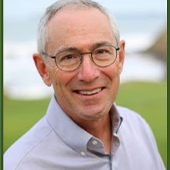
Time: 10:10 am – 11:10 am PST
Topic: Healing: Our Path from Mental Illness to Mental Health
BIO: Tom lnsel, M.D., a psychiatrist and neuroscientist, has been a national leader in mental health research, policy, and technology. From 2002-2015, Dr. Insel served as Director of the National Institute of Mental Health (NIMH). More recently, he led the Mental Health Team at Verily (2015-2017); co-founded Mind strong Health (2017-2019), a start-up building tools for people with serious mental illness; and served as a special advisor to California Governor Gavin Newsom (2019), helping on behavioral health issues. In 2020, he co-founded Human est Care, a therapeutic online community for recovery. In 2022, he joined Vanna Health as a co-founder and executive chair. Vanna Health is a start-up helping people with serious mental illness engage in psychosocial supportive care. He currently serves on the boards of Foundation for NIH, Fountain House, Schaeffer Center for Health Policy, and the Steinberg Institute (Chair, 2019-2022) as well as being an advisor to several mental health start-ups (including Alto Neuroscience, Cerebral, Compass Pathways, Owl Insights, Koa Health, Valera Health).
He is the author of Healing: Our Path from Mental Illness to Mental Health (Penguin Random House, 2022). With journalist co-founders, he launched Mind Site News (www.mindsitenews.org), a non-profit digital publication focused on mental health issues. Dr. Insel is a member of the National Academy of Medicine and has received numerous national and international awards including honorary degrees in the U.S. and Europe. More info at www.thomasinselmd.com.
CE Credit: No credits offered
Instructional Level: Advanced
COURSE DESCRIPTION
The last four decades have seen unprecedented progress in the science of mental illness, yet we have seen little progress in outcomes for people with serious mental illness. At a population level, morbidity and mortality are increasing not decreasing for those with schizophrenia, bipolar disorder, and severe mood and anxiety disorders. How to explain this gap between science and social impact? This lecture will suggest we have a crisis of care, with five major problems contributing (capacity, engagement, quality, accountability, and equity). Remarkably, while there is no magic bullet (or molecular target), there are solutions for each of these problems. Technology will help. But we need high touch as well as high tech. Most of all, we need to shift our model from a narrow medical “sick care” approach to a broader recovery “health care” approach, addressing the 3 P’s: people, place, and purpose. The problem of serious mental illness is indeed medical, but the solutions will need to include social, environmental, and political efforts if we are to bend the curves for morbidity and mortality.
COURSE OBJECTIVES
At the conclusion of this course, participants will be able to:
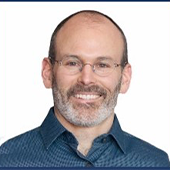
Time: 11:15 am – 12:45 pm PST
Topic: Harnessing Mindfulness to Combat Cravings, Anxiety, and Addiction in Mental Health Practice
Bio:Dr. Jud Brewer is a New York Times best-selling author, neuroscientist, addiction psychiatrist, and thought leader in the field of habit change. He is the director of research and innovation at Brown University’s Mindfulness Center, where he also serves as an associate professor of Behavioral and Social Sciences in the School of Public Health. He is the chief medical officer at Sharecare, a digital health company and a research affiliate at MIT.
Dr. Jud has developed and tested novel mindfulness programs for habit change, including treatments for smoking, emotional eating, and anxiety. He is the author of “Unwinding Anxiety: New Science Shows How to Break the Cycles of Worry and Fear to Heal Your Mind” and “The Craving Mind: From Cigarettes to Smartphones to Love, Why We Get Hooked and How We Can Break Bad Habits”.
Follow Dr. Jud Brewer on Instagram and Twitter, Facebook
CE Credit: 1
Instructional Level: Advanced
COURSE DESCRIPTION
What if the root of addiction isn’t in the substances itself, but somewhere deeper? While addiction can be difficult to overcome, mindfulness may offer a promising step forward in treating it. Through his clinical work and neuroscience research studies, as well as by developing digital therapeutics for habit change, Brewer will discuss the elementary mental mechanism that promotes cravings and addictions which dates back to prehistoric days. He will explain how our brains employ reward-based learning and intermittent reinforcement to construct habits gradually; these habits are hard to break. In this presentation, Brewer will describe why habits form and simple ways that we can break unhealthy ones ranging from smartphones to stress eating and even anxiety. He will also show how we can use these to build our natural capacities of awareness, kindness, and curiosity.
COURSE OBJECTIVES
At the conclusion of this course, participants will be able to:
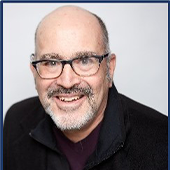
Time: 11:15 am – 1:15 pm PST
Topic: The Use of Popular Culture Characters, Humor, and Improvisation in CBT with Youth
BIO: Robert D. Friedberg, Ph.D., ABPP is a Full Professor, Head of the Pediatric Behavioral Health Care Emphasis, Director of the Center for the Study and Treatment of Anxious Youth at Palo Alto University, a member of the Speakers’ Faculty at the Beck Institute for Cognitive Behavioral Therapy, and a licensed clinical psychologist.
His professional experience includes work at Sharp Mesa Vista Hospital, Methodist Hospital of Indiana, Penn State Milton Hershey Medical Center/College of Medicine, and Wright State University. Friedberg is a Board-Certified Diplomate in Cognitive Behavioral Therapy, a former Extra-mural Scholar at the Beck Institute for Cognitive Behavioral Therapy, a Founding Fellow of the Academy of Cognitive Therapy, a Fellow of the American Psychological Association, and a Fellow of the Association for Behavioral and Cognitive Therapy (ABCT). He was named a Spotlight Mentor by ABCT.
Friedberg is the author of eleven books including Clinical Practice of Cognitive Therapy with Children and Adolescents (2015 with Jessica McClure), CBT-Express (with Drs. Jessica McClure, Micaela Thordarson, and & Marisa Keller), Handbook of CBT for Pediatric Medical Conditions (with Dr. Jennifer Paternostro), and Cognitive Behavior Therapy with Youth: Tradition and Innovation (with Dr. Brad Nakamura). A new book on creative applications of CBT with Dr. Erica Rozmid is due to be published in July 2022. Dr. Friedberg has authored many journal articles, book chapters, and national/international presentations focusing on CBT with youth, integrated pediatric behavioral health care, impact of COVID-19, and intolerance of uncertainty. His brand-new project is the use of narrative and storytelling to disseminate CBT to community practitioners.
CE Credits: 2
Instructional Level: Advanced
COURSE DESCRIPTION
This two-hour course focuses on the use of popular culture characters, humor, and improvisation in CBT with youth. These augmentations to traditional CBT practice may foster greater engagement and collaboration. More specifically, integrating superheroes into modular CBT is explained and described. The judicious use of humor as a way to both promote better working alliances and objectively evaluate faulty thinking patterns is discussed. Finally, improvisational theatre exercises are recommended as potentially valuable methods for increasing young patients’ tolerance of uncertainty.
COURSE OBJECTIVES
At the conclusion of this course, participants will be able to:
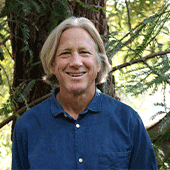
Time: 11:15 am – 1:15 pm PST
Topic: Cutting Edge Treatment
BIO: Dacher Keltner’s research focuses the biological and evolutionary origins of compassion, awe, love, and beauty, and power, social class, and inequality. As a Professor of Psychology at the University of California, Berkeley, and director of the Berkeley Social Interaction Lab, he is a leading scholar in the study of emotion, including a new project on awe around the globe, as well as power, class, and inequality. Dacher also serves as the Faculty Director of the Berkeley Greater Good Science Center. In 2020, along with Michael Pollan and others, he co-founded the UC Berkeley Center for the Science of Psychedelics. The center will conduct research using psychedelics to investigate cognition, perception and emotion and their biological bases in the human brain.
Dacher is the author of The Power Paradox, as well as the bestseller Born to Be Good: The Science of a Meaningful Life and The Compassionate Instinct. He has published over 190 scientific articles, including seminal works on the psychology of awe (Keltner & Haidt, 2003) and is the co-author of two textbooks. He is also co-editor of Dacher Keltner Professor of Psychology, Co-Director of the Greater Good Science Center & Author “A landmark book in the science of emotions and its implications for ethics and human universals.” — Library Journal, about “Born to be Good The Gratitude Project: How the Science of Thankfulness Can Rewire Our Brains for Resilience, Optimism, and the Greater Good. He has written for the New York Times Magazine, London Times, and Utne Reader, and his research has been covered in TIME, Newsweek, the Wall Street Journal, the New York Times, CNN, NPR, and the BBC as well as many other outlets. His new book is Awe: The New Science Of Everyday Wonder and How it Can Trans-form Your Life (Penguin Random House, January 3, 2023).
Dacher has collaborated on projects at Facebook and Google and served as a scientific consultant for Pixar’s film Inside Out. He is featured in Tom Shadyac’s documentary I Am. He has twice presented his research to His Holiness the Dalai Lama as part of a continuing dialogue between the Dalai Lama and scientists. Dacher has received outstanding teacher and research mentor awards from UC Berkeley and seen 20 of his PhD students and post-doctoral fellows become professors. Dacher is an outstanding speaker who has received several national research and teaching awards. Wired magazine has rated the podcasts of his “Human Emotion” course as one of the five best academic podcasts in the country. The Utne Reader named Dacher as one of its 50 Visionaries of 2008. In April 2020 he was voted into the American Academy of Arts & Sciences.
CE Credits: 2
Instructional Level: Advanced
COURSE DESCRIPTION:
In this course I will detail the latest advances in thinking about cutting edge treatments, with a particular focus on the transcendent states – awe, gratitude, love, joy, bliss, reverence. I will detail the latest thinking in the evolution and neurophysiology of these states. I will consider how they shift our mental states in ways that are beneficial for mental and physical health. I then will consider different cutting edge approaches to mental and physical health, with a brief focus on nature, music, and visual art, and the ways they benefit health through experiences of transcendence. Grounded in this new science, I then will offer a survey of the new science of psychedelics and their relevance to health.
COURSE OBJECTIVES:
At the conclusion of this course, participants will be able to:
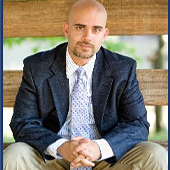
Time: 11:15 am – 1:15 pm PST
Topic: Addiction: A Futuristics Perspective
BIO: Omar is a leading expert on behavior change. His career is characterized by developing, piloting, and commercializing scalable solutions that drive durable behavior change in chronic disease. At Dario he leads the company’s clinical solutions and provides visible external and internal leadership, developing and maintaining c-level health plan relationships, conducting our clinical research, vetting clinical partnerships, and setting clinical product strategy to drive clinical and financial outcomes. Close partnership with digital product in Dario’s agile environment has led to best-of-suite solutions with industry-leading outcomes.
Previous roles include Chief Medical Officer of Catasys where he led Product from zero to pilots and then to commercial scale, securing contracts for the program with most of the largest health plans in the US and several regional plans and offering services in 28 states. He has developed and scaled solutions for commercial, exchange, managed Medicare Advantage, and managed Medicaid adult populations as well as employer markets. Innovative products and clinical protocols he developed are helping thousands of people get the care they desperately need to improve their health and reduce their overall costs. These solutions and partnerships are directly responsible for Catasys growth from zero to an approximately $1.5 billion valuation at peak.
Prior to that, he held various leadership roles most recently as Medical Director at Hazelden. He has an MBA from the University of Virginia’s Darden School of Business, an M.D. from the University of Maryland School of Medicine and served as Executive Chief Resident in Psychiatry at Duke University. He is a Distinguished Fellow of the American Psychiatric Association, a Fellow of the American Society of Addiction Medicine, and board certified in Psychiatry, Addiction Medicine and Medical Management. He is the recipient of numerous awards and the author of several publications including the best-selling book Craving: Why We Can’t Seem to Get Enough (Hazelden Pub 2013). To learn more about Dr. Manejwala personally, visit www.manejwala.com and to learn more about DarioHealth visit www.dariohealth.com
CE Credits: 2
Instructional Level: Advanced
COURSE DESCRIPTION
Healthcare in general, and addiction treatment specifically, are poised to experience dramatic shifts over the next 5-10 years. Increasing payer pressure to capture, report and improve outcomes, and to control costs and alter the trajectory of the illness will result in wholesale shifts in the way addictions are managed. Broader societal goals of increasing access to care, improving the efficacy and utilization of screening, prevent the onset of these disorders, and manage the widespread criminalization of substance use disorders can be achieved if philosophical objections and technological hurdles can be negotiated.
In this talk, a futurists perspective on addiction will be presented, with an eye to briefly describing the forces that led us to our current state and describing changes that might allow us to navigate to improved global addiction outcomes. In particular, an emphasis on broader, well-defined principles of healthcare innovation and their potential application to addiction will be discussed. Attendees will leave with a broader perspective on how they themselves can participate in defining the future of addiction treatment.
COURSE OBJECTIVES
Learning objectives. At the conclusion of the presentation, attendees will be able to:
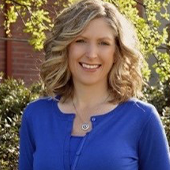
Time: 11:15 am – 12:15 pm PST
Topic: Eating Disorders 101
BIO:Jennifer Lombardi, CEDS, MFT is a behavioral health manager II for Kaiser Permanente, and provides oversight for eating disorder and adult IOP services for the North Valley Service area. She has been with KP since January 2019, where she started as a primary therapist and eventually transitioned into her first leadership role at the Stockton EDIOP. She transferred to Sacramento in May 2022 and continued her BHM I role, overseeing EDIOP, hospital-based care for eating disorder patients, and eventually oversaw the expansion to include specialty lanes of care for pediatric and adult patients with eating disorders. Most recently, she accepted the role of BHM II, and will continue to support eating disorder and adult IOP services. Prior to joining Kaiser, she co-founded Empathic Way Treatment Center, in Roseville, California, an outpatient clinic that provides individual, family and couples counseling for individuals and their loved ones struggling with anorexia, bulimia, binge eating disorder, mood disorders and exercise compulsion, as well as consulting services for triage and assessment. In addition to her clinical practice, Jen has also served as former Executive Director and a National Recovery Advocate for Eating Recovery Center.
Jen has extensive training in the field of eating disorders, including completing her certification in Family Based Treatment (FBT). She is also a Certified Eating Disorder Specialist Supervisor through the International Association of Eating Disorder Professionals, as well as a Certified Daring Way Facilitator, trained in the experiential work developed by author and research professor, Dr. Brenè Brown. She uses the Daring Way™ method, a highly experiential methodology, to work with individuals struggling with shame, vulnerability, and self-compassion, particularly individuals struggling with eating disorders.
In addition to her work in the field of eating disorders, she has worked with at-risk youth, provided court-mandated counseling for families, conducted forensic assessments, and completed training programs in CBT, DBT and ACT. She enjoys working with individuals with trauma, anxiety and depression, as well as complex family issues.
Jen attended California State University, Sacramento, where she received her undergraduate degree in Government/Journalism and her Master’s in Marriage, Family and Child Counseling.
CE Credit: 1
Instructional Level: Advanced
COURSE DESCRIPTION
Overview of eating disorder etiology, levels of care and nuances of engaging adult versus pediatric patients and their caregivers
COURSE OBJECTIVES
At the conclusion of this course, participants will be able to:
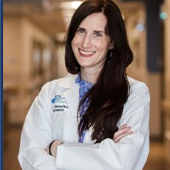
Time: 12:15 pm – 1:15 pm PST
Topic: Treating Patients with Eating Disorders: A Psychiatric Perspective
BIO:Dr. Bauschka is a board-certified psychiatrist who works with ACUTE’s multidisciplinary treatment team in a consulting role to deliver direct psychiatric care and medication management. She earned her medical degree at Case Western Reserve University School of Medicine in Cleveland, Ohio. She completed her adult psychiatry residency at the University of Utah School of Medicine and Affiliated Hospitals. After completing residency, Dr. Bauschka worked for 2 years as an adult inpatient psychiatrist at the University Neuropsychiatric Institute, which is now known as the Huntsman Mental Health Institute, at the University of Utah. She then joined Eating Recovery Center and Pathlight Mood & Anxiety Center in Chicago in 2019, followed by a transition to Denver to work with the ACUTE team starting in January 2021. She has experience treating adults with mood and anxiety disorders, eating disorders, psychotic disorders, PTSD, personality disorders and substance use disorders.
Dr. Bauschka is committed to educating the next generation of physicians and has held an Assistant Professor faculty position at Rush Medical College in the Department of Psychiatry and Behavioral Sciences (2019-2021), an Adjunct Assistant Professor faculty position in the Department of Psychiatry, Adult Division, at the University of Utah (2019-present) and an Instructor faculty position at the University of Colorado School of Medicine (2021-present).
She is a member of the American Psychiatric Association and the International Association of Eating Disorder Professionals (iaedp), and obtained her CEDS (Certified Eating Disorders Specialist) certification through iaedp in 2022.
CE Credit: 1
Instructional Level: Advanced
COURSE DESCRIPTION
This presentation will review how eating disorders and malnutrition affect the brain, and the psychiatric medication strategies that can be considered in this patient population. This presentation will also cover weight stigma and weight bias, and how this can impact a patient’s treatment experience and symptoms.
COURSE OBJECTIVES
At the conclusion of this course, participants will be able to:
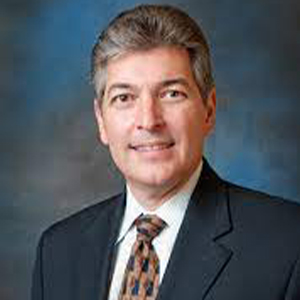
Time: 2:00 pm – 3:00 pm PST
Topic: What All Clinicians Need to Know About Eating Disorders and Their Treatment
BIO: Ovidio Bermudez, M.D. is the Senior Medical Advisor for Eating Recovery Center and affiliates. He holds academic appointments as Clinical Professor of Psychiatry and Pediatrics at the University of Colorado School of Medicine and University of Oklahoma College of Medicine. He is Board certified in Pediatrics and Adolescent Medicine.
Dr. Bermudez is a Fellow of the American Academy of Pediatrics, the Society for Adolescent Health and Medicine, the Academy for Eating Disorders, and the International Association of Eating Disorders Professionals. He currently serves on the Board of Directors of IAEDP. He is Past Chairman and currently Senior Advisor to the Board of Directors of the National Eating Disorders Association, Co-Founder of the Eating Disorders Coalition of Tennessee and Co-founder of the Oklahoma Eating Disorders Association. He is a Certified Eating Disorders Specialist and training supervisor by the International Association of Eating Disorders Professionals and serves on its Board of Directors.
Dr Bermudez has lectured nationally and internationally on eating pathology across the lifespan, obesity, and other topics related to pediatric and adult healthcare. He has been repeatedly recognized for his dedication, advocacy, professional achievement and clinical excellence in the field of eating disorders, including Lifetime Achievements Awards from NEDA and IAEDP.
CE Credit: 1
Instructional Level: Advanced
COURSE DESCRIPTION
In this presentation we will discuss several aspects that are important to the understanding, diagnosis, and treatment of eating disorders. This includes maintaining a high index of suspicion in the recognition of EDs, working with the ego syntonic nature for many patients, nuances of treatment, and an overview of medical complications. Some helpful resources will be provided.
COURSE OBJECTIVES
At the conclusion of this course, participants will be able to:

Time: 2:00 pm – 3:15 pm PST
Topic: Calling In, Not Calling Out
BIO: Loretta J. Ross is an Associate Professor at Smith College. As a 2022 recipient of the MacArthur Foundation "Genius" award, she is an activist, public intellectual, and scholar. Her passion is innovating creative imagining about global human rights and social justice issues. As the third director of the first rape crisis center in the country in the 1970s, she helped launch the movement to end violence against women that has evolved into today's #MeToo movement. She also founded the first center in the U.S. to innovate creative human rights education for all students so that social justice issues are more collaborative and less divisive. She has also deprogrammed members of hate groups leading to conceptualizing and writing a book on Calling In the Calling Out Culture to transform how people can overcome political differences to use empathy and respect to guide difficult conversations.
Loretta started her career in activism and social change in the 1970s, working at the National Football League Players' Association, the D.C. Rape Crisis Center, the National Organization for Women (NOW), the National Black Women's Health Project, the Center for Democratic Renewal (National Anti-Klan Network), the National Center for Human Rights Education, and SisterSong Women of Color Reproductive Justice Collective, until retiring as an organizer in 2012 to teach about activism.
Her most recent books are Reproductive Justice: An Introduction, co-written with Rickie Solinger, and Radical Reproductive Justice: Foundations, Theory, Practice, Critique. Her forthcoming book, Calling In the Calling Out Culture, is due in 2024.
She has been quoted in the New York Times, Time Magazine, The Los Angeles Times, and the Washington Post, among others. In addition, she was inducted into the National Women's Hall of Fame in 2023.
CE Credit: 1
Instructional Level: Advanced
COURSE DESCRIPTION
Harm occurs in all communities, whether it be microaggressions or greater ruptures. It is impossible to assemble a group of people and not have at least some tension; - in fact, tensions and frictions can help us grow and learn. In this presentation, Professor Ross will provide an overview of the C5 Calling In Framework, which helps individuals to create change in the world by changing their behavior rather than trying to change someone else. C5 is often an in-the-moment intervention, which can be used in conjunction with other tools for systemic change.
The spectrum of the C5 Calling In Framework offers five ways to engage when harm occurs.
Always ask yourself what you have the capacity for and strategically choose a response that works for you and for your situation. Each response can be incredibly effective, but not every style works for everyone in all situations.
Calling Out: Public demands for others to change their behaviors, speech or thoughts to hold them accountable
Cancelling: Punishing people with job loss, deplatforming or other consequences
Calling In: Private or public skills for having difficult dialogues with others while respecting their human rights and differences
Calling On: Requesting people to do better without investing in their growth
Call it Off: Disengaging the conversation
Oftentimes when harm occurs we get locked into a binary mindset where there are only two response options: calling out or calling in. This results in a belief that calling out is bad and calling in is good. Therefore, one should never call out and always call in. It is important to get away from this binary thinking and instead, think about the spectrum of five options which comprise the C5 continuum.
COURSE OBJECTIVES
At the conclusion of this course, participants will be able to:
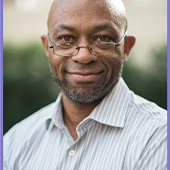
Time: 2:00 pm – 4:00 pm PST
Topic: Culture-Responsive Treatment and Using Evidence-Based Treatments with Ethnic Minority Populations
BIO: Dr. Stan Huey is an Associate Professor of Psychology at the University of Southern California (USC), with a joint appointment in American Studies and Ethnicity. He received his B.A. in Anthropology and Psychology from UC Berkeley in 1990 and his Ph.D. in Clinical Psychology from UCLA in 1998. He joined the USC faculty in 2000.
His research focuses on reducing disparities in behavioral health by optimizing treatments for high-risk populations, with a particular focus on effectiveness of culturally-tailored treatments. Dr. Huey teaches classes addressing mental health and diversity, and recent courses include culture and mental health, the psychology of African Americans, race and crime, and the psychology of racial bias. He is also a clinical psychologist who regularly provides supervision to graduate students in clinical psychology.
CE Credit: 2
Instructional Level: Advanced
COURSE DESCRIPTION
This course will provide an overview of the research on evidence-based mental health treatments for ethnic minority populations. Practical, science-based guidelines for effectively engaging and treating ethnic minority populations will be presented.
COURSE OBJECTIVES
At the conclusion of this course, participants will be able to:
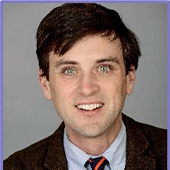
Time: 2:00pm – 4:00 pm PST
Topic: Making Mindfulness Stick with Children and Teens
BIO:Dr. Christopher Willard, (Psy. D.) is a clinical psychologist, author and consultant based in Massachusetts. He has spoken in thirty countries and has presented at two TEDx events. He is the author of twenty books, including Alphabreaths (2019), Growing Up Mindful (2016) and How we Grow Through What we Go Through. (2022) His thoughts on mental health have been featured in The New York Times, The Washington Post, mindful.org, cnn.com, and elsewhere. He teaches at Harvard Medical School.
CE Credits: 2
Instructional Level: Advanced
COURSE DESCRIPTION
Join author, psychologist, and consultant Dr. Christopher Willard in this workshop for professionals interested in sharing mindfulness with young clients and their families. Dr. Willard will be offering neuroscience based, creative mindfulness practices to boost learning, mental health and more. We will explore mindfulness through awareness, movement, games, play, and creative activities for all ages.
Learning differences, cultural differences, developmental differences, and more all affect how children learn best, and this workshop explores ways to adapt mindfulness, rather than approach with a one-size fits all approach. We will discuss tailoring techniques to a range of issues, including depression, anxiety, executive function challenges, trauma and stress. Different practices will engage different learning styles through arts, sports, games, music, technology and more, for attention spans ranging from 30 seconds to 30 minutes.
COURSE OBJECTIVES
At the conclusion of this course, participants will be able to:
CONTINUING EDUCATION INFORMATION
Kaiser Permanente Northern California Mental Health Training Program is approved by the California Psychological Association to provide continuing professional education for psychologists. The Kaiser Permanente Northern California Mental Health Training Program maintains responsibility for this program and its content.
Refund and Attendance Policy
The seminars mentioned above are Free of charge to Kaiser Permanente Employees and Trainees.
IMPORTANT NOTICE: Those who attend the program in full and complete the appropriate evaluation form will receive CE credits. Please note that credit will only be granted for those who attend the entire lecture. Each speaker session is calculated independently.